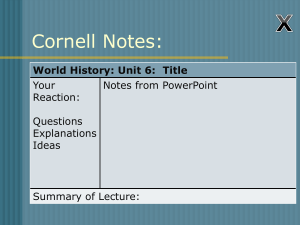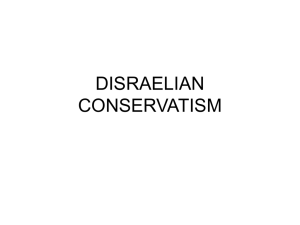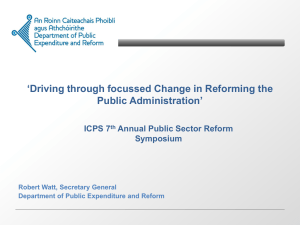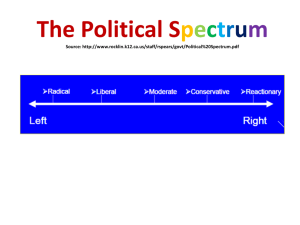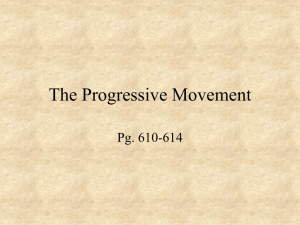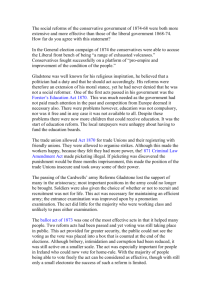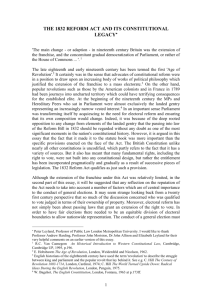1867 Reform Act - Coleg y Cymoedd Moodle
advertisement
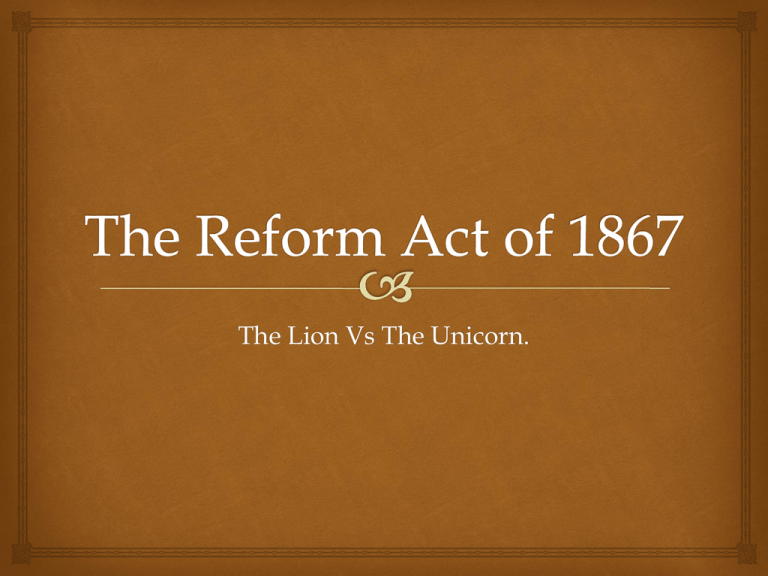
The Lion Vs The Unicorn. Aim To provide learners with a detailed knowledge of the passing of the Second Reform Act of 1867. To Explore the what motivated the Conservatives to pass the reform act and the effects that it had. Outcomes Identify the causes for a renewal in the issue of Parliamentary reform. Describe the passage of the Act through Parliament. Describe the content of the Act Evaluate the motivations behind the Conservatives putting the act before Parliament. Identify why the Liberal Party benefited from the Reform Act. Analyse the impact the Act of the Conservative party. Background Why the calls for reform? Failure of 1832 Great Reform Act Increasing population, particularly in urban areas Development of Railways, printed materials and education Changing political identities Strengthening of Trade Unionism Growth of Radical calls for reform Growth of reform organisations Passage of the Act 1864 – Reform Union founded 1865 – Reform League founded 1865 – Lord Russell Became PM 1866 – Gladstone introduced a reform bill (June)This bill was defeated in the Commons (June)Russell resigned and Lord Derby became PM, Disraeli becomes Chancellor (July) Hyde Park riots 1867 – (March)Disraeli introduced the Reform Act (August) Reform Act became law. Question Thinking back to the Great Reform Act of 1832, what differences do you notice about the passage of the Second Reform Act? What did the Act do? Extended the Franchise In the Boroughs: All male householders could vote, regardless of the type of dwelling as long as they had lived there for 12 months. Lodgers paying at least £10 per month in rent could also vote, again as long as they had been there 12 months. In the Counties: Arrangements remained as per 1832 but with the addition: Owners or leaseholders of lands of yearly value of £5 or more could vote, along with owners of land to a rateable value of £12 per year who also paid poor rates. Redistribution: 45 Seats were taken from Boroughs with populations of under 10,000 inhabitants and 7 towns were disenfranchised for corruption. 25 seats were given to counties, 20 seats were created for new boroughs, 6 boroughs received 1 extra seat each, and London University was given a seat. Question What do you notice about the content of the reform bill, what sort of things are missing? Why would the Conservatives want reform? Read through the following extracts to see if you can identify any reasons why the Conservative would be willing to put forward a reform bill. Why did the Liberals win the 1868 election? Effective election campaigning by Gladstone and the Liberals. Liberals won the Middle Class and Working Class vote. Non-conformists were won over by the Liberal election promises concerning the dis-establishment of the Anglican church in Ireland. Poor election campaign by the Conservatives. How did 1867 impact the Conservatives? Disraeli was now outright leader of the party Instigated party reform Developed One Nation Conservatism Sought to combine support from the W/C, M/C and L/C How did impact Britain? It did not include any aspect of secret ballot The distribution of seats left a lot to be desired People such as miners still did not have a vote, nor did many agricultural labourers Increased electorate meant that they were now too large to bribe effectively. Forced political parties to realise that they would need to start explaining their policies – development of election campaigns Assessment Hour Read through the article from the Spectator as well as drawing on your own knowledge and consider the following question: “Was Disraeli genuinely interested in creating a nation based upon the notion of ‘One Nation Conservatism’ or was this a pragmatic political response to win the 1874 general election”

